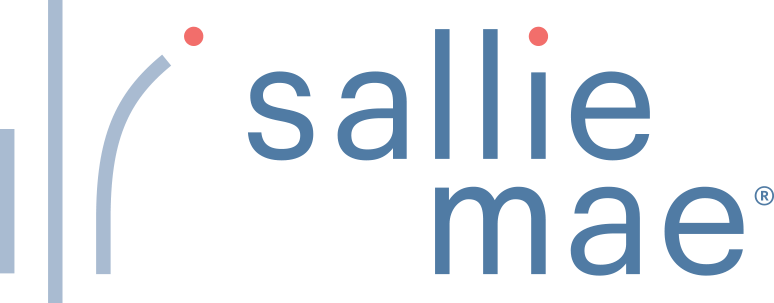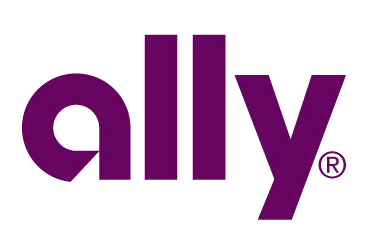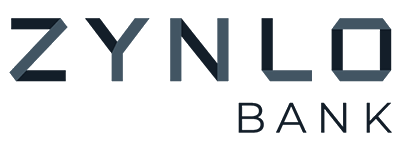8 Best Money Market Accounts: Up to 5.00%
The best money market accounts have strong rates that can help increase your savings funds.
Many, or all, of the products featured on this page are from our advertising partners who compensate us when you take certain actions on our website or click to take an action on their website. However, this does not influence our evaluations. Our opinions are our own. Here is a list of our partners and here's how we make money.
Strict editorial guidelines to ensure fairness and accuracy in our coverage to help you choose the financial accounts that work best for you. See our criteria for evaluating banks and credit unions.
More than 90 financial institutions surveyed by our team of experts.
More than 50 data points considered for each bank and credit union to be eligible for our roundups.
The best money market accounts have rates that help you grow your bank balance faster than those with average rates.
Depending on your needs, a high-yield savings account might help you save more. We’ve included a few options at the bottom of the page to help you compare.
Money market account definition
A money market account is a type of savings account that may also offer the ability to write a few checks or make a few debit card transactions each month.
Weigh your options: Some high-yield savings accounts beat money market rates and have lower fees, which means you’ll come out ahead with the former. And the best savings accounts have low to no minimum deposits. But without debit cards or checks, it might be harder to access your money in a regular savings account compared to an MMA. (Check out NerdWallet's best high-yield online savings accounts.)
Here's an example of the benefits of high money market rates. Let’s say you put $10,000 in an account that earns a full 1% APY. After a year, your balance would earn $100.
Put that same amount in a money market account with a 4% APY, and it would gain just over $400. You earn extra money with no extra effort. Read on for more details about NerdWallet’s top money market accounts.
APYs shown are current as of October 25, 2024. All other information is current as of March 1, 2024.
Bank/institution | NerdWallet rating | APY | Bonus | Learn more |
|---|---|---|---|---|
4.5/5 | 3.80% With $0 min. balance for APY | N/A | Learn more at Discover® Bank, Member FDIC | |
4.5/5 | 5.00% With $0 min. balance for APY | N/A | Learn more at Quontic Bank, Member FDIC | |
5.0/5 | 4.90% With $0.01 min. balance for APY | N/A | Read review | |
4.5/5 | 4.20% With $0.01 min. balance for APY | N/A | Read review | |
4.5/5 | 4.00% With $0.01 min. balance for APY | N/A | Read review | |
4.5/5 | 5.00% With $0.01 min. balance for APY | N/A | Read review | |
4.5/5 | 4.30% With $50,000 min. balance for APY | N/A | Read review | |
4.4/5 | 4.75% With $0.01 min. balance for APY | N/A | Read review |
Our pick for
Money Market Account

APY
3.80%
With $0 min. balance for APY
Bonus
N/A

APY
5.00%
With $0 min. balance for APY
Bonus
N/A

APY
4.90%
With $0.01 min. balance for APY
Bonus
N/A

APY
4.20%
With $0.01 min. balance for APY
Bonus
N/A

APY
4.00%
With $0.01 min. balance for APY
Bonus
N/A

APY
5.00%
With $0.01 min. balance for APY
Bonus
N/A

APY
4.30%
With $50,000 min. balance for APY
Bonus
N/A

APY
4.75%
With $0.01 min. balance for APY
Bonus
N/A
The investing information provided on this page is for educational purposes only. NerdWallet, Inc. does not offer advisory or brokerage services, nor does it recommend or advise investors to buy or sell particular stocks, securities or other investments.
What is the difference between a money market account and a standard savings account?
A savings account is a type of deposit account offered by a financial institution that typically earns interest. A money market account is also a type of deposit account, but it typically requires a higher minimum balance.
MMAs have traditionally earned higher interest rates compared to standard savings accounts, though recently some high-yield savings accounts have been offering better returns.
Some MMAs come with a debit card or checks — but institutions may require that they not be used more than about six times per month.
A high-interest savings account earns attractive rates, but typically does not have debit card or check-writing access. However, savings accounts generally have similar restrictions for some types of withdrawals, such as online transfers.
The main reason to open a money market account is to have a higher interest rate compared to a traditional savings or checking account, while also having the ability to write a few checks.
Check out NerdWallet's primer on types of savings accounts for more information.
Why the best money market rates matter
Your funds grow faster in a high yield account. The average money market rate is a fraction of a percent, while the best money market accounts earn rates that are many times higher.
Are the best money market accounts insured?
Yes, as long as they are deposit accounts that come from a bank or credit union that is federally insured. You can find federally insured accounts at traditional brick and mortar banks and online banks. The Federal Deposit Insurance Corp. insures deposits up to at least $250,000. If the account is with a credit union, the account will likely be federally insured through the National Credit Union Administration, also up to at least $250,000.
If a bank or credit union were to fail and go out of business, you would not lose the money you have in the money market account, up to the insured amount. Note that this is different from funds held in money market mutual funds, which are not federally insured.
» Want to know more about how your money is protected? Read how FDIC and NCUA insurance programs work.
The difference between a money market account and a money market mutual fund
A money market account is a federally insured account that earns interest. A money market mutual fund, on the other hand, is an investment in short-term debt. It is considered low risk but doesn't have a guaranteed return.
» Learn more about both by reading NerdWallet’s guide on money market mutual funds.
Top savings options
These days, there isn’t always much difference between the rates paid by money market accounts and the best savings accounts. If you don’t need checks or a debit card, you might consider one of these federally insured accounts, which also pay great rates.
My Banking Direct, 4.85% APY (read full review).
UFB Direct, 4.31% APY (read full review).
Upgrade, 4.41% APY (read full review).
Last updated on October 25, 2024
Methodology
We took a close look at over 90 financial institutions and financial service providers, including the largest U.S. banks based on assets, internet search traffic and other factors; the nation’s largest credit unions, based on assets and membership; and other notable and/or emerging players in the industry. We rated them on criteria including annual percentage yields, minimum balances, fees, digital experience and more.
Financial institutions and providers surveyed are: Affirm, All America Bank, Alliant Credit Union, Ally Bank, Amalgamated Bank, America First Credit Union, American Express National Bank, Andrews Federal Credit Union, Associated Bank, Axos Bank, Bank of America, Bank5 Connect, Bank7, Barclays, Bask Bank, Bethpage Federal Credit Union, BMO, BMO Alto, Boeing Employees Credit Union, Bread Savings, BrioDirect, Capital One, Carver Federal Savings Bank, Charles Schwab Bank, Chase, Chime, CIBC U.S., CIT Bank, Citibank, Citizens, Citizens Bank, City First Bank, Climate First Bank, Commerce Bank, Community First Credit Union of Florida, ConnectOne Bank, Connexus Credit Union, Consumers Credit Union, Current, Delta Community Credit Union, Discover® Bank, E*TRADE, EverBank (formerly TIAA Bank), Fifth Third Bank, First Foundation, First National Bank, First Tech Federal Credit Union, Flagstar Bank, FNBO Direct, Global Credit Union, GO2bank, Golden 1 Credit Union, Greenwood, Hope Credit Union, Huntington Bank, Industrial Bank, Ivy Bank, KeyBank, Lake Michigan Credit Union, LendingClub Bank, Liberty Bank, Live Oak Bank, M&T Bank, Marcus by Goldman Sachs, Navy Federal Credit Union, NBKC, One, OneUnited Bank, Pentagon Federal Credit Union, PNC, Popular Direct, Quontic Bank, Regions Bank, Revolut, Salem Five Direct, Sallie Mae Bank, Santander Bank, SchoolsFirst Federal Credit Union, Security Service Federal Credit Union, Securityplus Federal Credit Union, Self-Help Credit Union, Service Credit Union, SoFi, State Employees’ Credit Union of North Carolina, Suncoast Credit Union, Synchrony Bank, TAB Bank, TD Bank, Truist Bank, U.S. Bank, UFB Direct, Upgrade, USAA Bank, Varo, Vio Bank, Wells Fargo and Zynlo Bank.
NerdWallet's Best Money Market Accounts: Up to 5.00%
- Discover® Money Market Account: Best for Money Market Account, 3.80% APY
- Quontic Money Market Account: Best for Money Market Account, 5.00% APY
- Vio Bank Cornerstone Money Market Account: Best for Money Market Account, 4.90% APY
- Sallie Mae Money Market Account: Best for Money Market Account, 4.20% APY
- Ally Bank Money Market Account: Best for Money Market Account, 4.00% APY
- Zynlo Money Market Account: Best for Money Market Account, 5.00% APY
- EverBank Performance℠ Money Market: Best for Money Market Account, 4.30% APY
- First Foundation Bank Online Money Market: Best for Money Market Account, 4.75% APY
Frequently asked questions
- How do I choose the best money market account?
Look for a money market account with a high rate and no monthly fees. Some money market accounts have a monthly fee of around $10 or more if you don’t keep a daily minimum balance, typically $1,000 or more. Accounts featured on this page have high rates and low fees.
- Are money market rates fixed?
No, rates are variable and can change over time. The money market accounts featured on this page are among those with the most consistently highest rates.
- How do I open a money market account?
You can open a money market account either online or in person. Be prepared to provide your Social Security number and contact information, along with at least one form of identification, such as a driver’s license or a passport. (For a joint account, everyone wanting access to the account must provide this information and valid forms of identification.)
The bank will often require you to transfer money into the new account right away. You can do that by depositing cash or checks, or through a wire transfer.